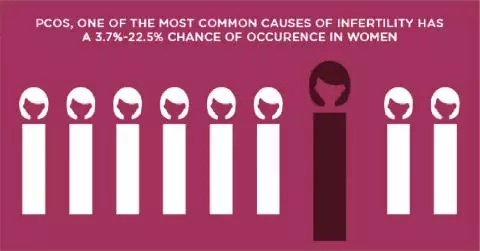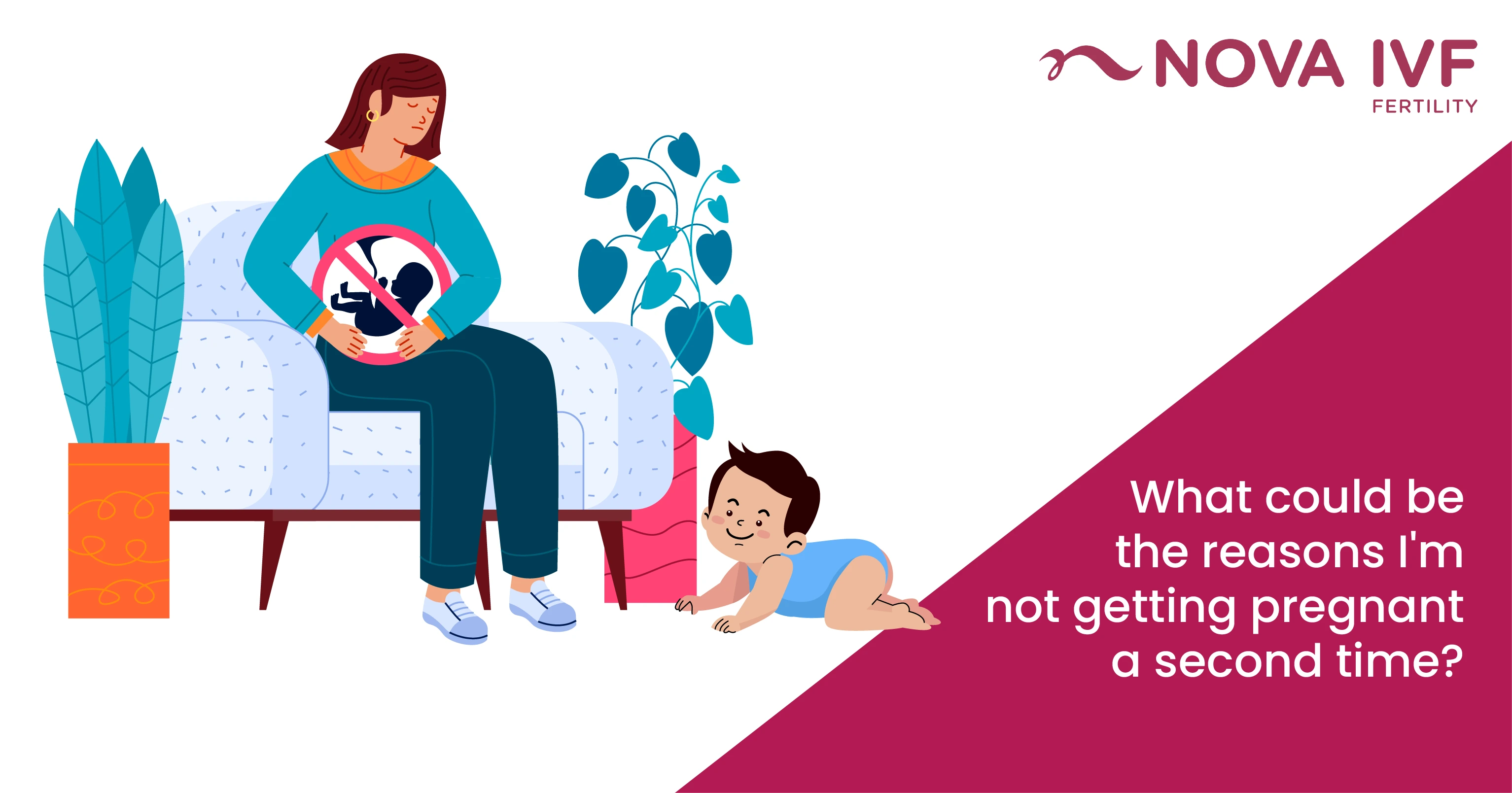What Are the Causes of Secondary Infertility?

Studies show that 30-40% of infertile couples suffer from secondary infertility. Couples who are not able to conceive for the second time or even the third time are considered to be suffering from secondary infertility. The experience during the first time may not have been much of a hassle. You might not even have thought of how difficult it was to conceive a child. It just happened and everything was happy.
During the second time around, you started trying for a child and you are frustrated because it’s been over six months and the home pregnancy test is never positive. You start wondering what’s wrong this time because the first time, it just happened! The stress involved in trying to conceive another child is similar to couples facing primary infertility issues. You also have the guilt of not being able to give a sibling to your kid. You are stressed and wonder what changed. There can be several factors responsible for preventing you from getting pregnant again. The most common causes of secondary infertility are listed below.
Woman’s Age
Women are most fertile in their 20s and early 30s. In your late 30s, the ovarian reserve or egg reserve starts to deplete. This decline is seen in the quanity as well as quality of eggs produced. Also, the proportion of eggs with chromosomal abnormalities increases proportionately as we age. Abnormal eggs are incapable of giving rise to successful pregnancies and also have a higher chance of transmitting genetic defects to the child. This is known to be the most common reason for infertility.
With aging, the quality of eggs also decreases. The eggs produced may not have the capability to form an embryo. If you are trying to conceive in your late 30s or early 40s, it is advised to consult the doctor and discuss your pregnancy options as soon as possible.
The Health Of The Uterus
If you underwent a caesarean or during the birth of your previous child, if there were uterus adhesions or pelvic scarring, it would make it difficult to go through a healthy second pregnancy. The scarred tissues might affect the fertilisation process the next time.
You may also have developed conditions like endometriosis or blockage in the fallopian tube that can negatively impact the implantation of the embryo. A blockage or scar in the fallopian tube can lead to ectopic pregnancy. An ectopic pregnancy is when the embryo attaches itself to the lining of the fallopian tube instead of the uterus. In the presence of a blockage or scar, the egg will not reach the uterus and the fertilisation takes place in the fallopian tube, which generally results in miscarriage.
Women can develop PCOS for many reasons at any age. It might have been an underlying condition during your previous pregnancy too. This condition will affect your ovulation causing difficulties in conceiving. If you have been trying to conceive naturally over six months and not been able to, please visit your gynaecologist for a routine check-up.
Partner’s Health
The age matters both in women and men. The sperm quality may reduce as a man ages. Sometimes, there may be no movement in the sperms thus affecting the fertilisation process or there may be a lower sperm count. If your spouse is of advanced age, you need to consult a fertility specialist for a sperm analysis.
Some of the common male factors causing infertility are:
- Oligospermia is a condition where your partner’s sperm count is lower than 15 million sperms per ml. The treatment for this case involves extracting healthy sperms from the semen sample and then performing ICSI for fertilisation.
- Teratospermia is a condition where sperms are abnormally shaped, which affects the ability of the sperm to reach and penetrate an egg. The remedy for this would be to identify sperm with good morphology in the lab and an ICSI may be the best treatment option if the percentage of abnormal sperms is too high.
- Asthenospermia means there is poor motility of the sperms. The lack of motility affects the movement of the sperm and there is lesser chance that the sperms can swim to the egg for fertilisation. The ideal treatment for this again would be to identify sperm with good motility in the lab.
- Azoospermia is a condition wherein there is a complete absence of sperm in the testes. In this case, doctors will take a biopsy of the testes (TESA) to examine for any sperm presence.
In the above cases, only a sperm analysis.
would give a broad idea of where the issue lies.
Nova IVF Fertility
At Nova IVF Fertility, we have a dedicated team of consultants, embryologists and andrologists to treat all forms of infertility, including secondary infertility. We are also equipped with advanced science and technology that help us precisely identify the issue and treat the patients accordingly.
All the conditions mentioned above can be treated depending on factors like your willingness and health conditions. At Nova, we believe we are the best chance for you at pregnancy, because we have every resource at our disposal from the routine IUI to advanced procedures like ICSI, TESA, and others.
 Infertility Counselling
Infertility Counselling Female Infertility Treatment
Female Infertility Treatment Andrology Treatment
Andrology Treatment Fertility Enhancing Surgeries - Female
Fertility Enhancing Surgeries - Female Fertility Enhancing Surgeries - Male
Fertility Enhancing Surgeries - Male Endoscopy Treatment
Endoscopy Treatment IUI Treatment
IUI Treatment IVF Treatment
IVF Treatment ICSI Treatment
ICSI Treatment Advanced IVF Solutions
Advanced IVF Solutions Embryology
Embryology Vitrification Egg, Embryo, Sperm Freezing
Vitrification Egg, Embryo, Sperm Freezing Preimplantation Genetic Testing (PGT)
Preimplantation Genetic Testing (PGT) Donation Program Embryo / Egg / Sperm
Donation Program Embryo / Egg / Sperm Self-cycleTM IVF
Self-cycleTM IVF

 Self-cycleTM IVF
Self-cycleTM IVF










